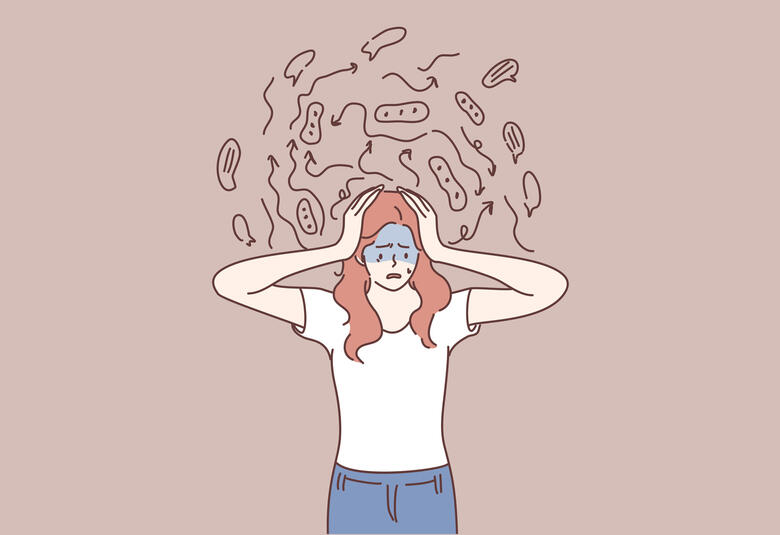The challenges and consequences of non-adherence to treatment in schizophrenia, and some novel ways to address these, were the subject of a fascinating discussion between Prof John Kane, and Dr Ralph Aquila at ECNP.
Being human: non-adherence is normal, but the consequences are profound
The costs of schizophrenia and non-adherence to medication are profound
Both speakers agreed that the burden of schizophrenia itself, and of non-adherence to medication, are high. Dr Aquila (Fountain House, New York, USA) discussed the individual and public-health costs of schizophrenia. Schizophrenia can have profound consequences for the individual – in terms of their relationships, ability to work, living environment, stigmatization and long-term well-being. There are also public health costs associated with schizophrenia and in particular relapse, including direct medical costs associated with rehospitalization and need for social services. These costs contrast with a relative lack of support for this disorder in the general population, both in recognition of the disease and its consequences, and in allocation of resources.
Around 50% of patients taking medication will be non-adherent
Prof Kane (The Zucker Hillside Hospital, New York, USA) described non-adherence to antipsychotic medication as the elephant in the room – mostly unacknowledged. In the past, physicians have simply assumed patients will take their medication as prescribed. However, we know that around 50% of patients taking medication will be non-adherent. This is not a failing on the part of the patient, he pointed out, it is simply human nature to have trouble remembering to take medications regularly. However, a large proportion of hospitalizations of patients with schizophrenia are a result of poor or non-adherence. Moreover, each relapse can result in a slower recovery, accumulation of disease burden, the evolution of treatment resistance, a loss of self-esteem, and the potential for psychosocial consequences such as relationship breakdown and homelessness.
A large proportion of hospitalizations are the result of non-adherence
Unreliable memoires: patient reports do not accurately reflect adherence
At present, Prof Kane pointed out, we do not generally have accurate information on patients’ adherence. The most common way to assess this is to ask the patient whether they have been taking their medication. For various reasons, including simple lack of memory, patient reports are unreliable sources for such information. This unreliability can, in turn, affect therapeutic decision-making. If a patient is not doing well but the physician assumes they are taking their medication, then they may well use strategies such as increasing the dose of antipsychotic, switching to another drug or adding a second drug, in an attempt to increase therapeutic benefits. While, all the time, what the patient may actually need is support to achieve adherence, so they receive a therapeutic dose of their original medication.
Lack of reliable information on adherence affects therapeutic decision-making
Accurate information from blood testing
Dr Aquila discussed the potentially important innovation of therapeutic drug monitoring (TDM), as a way to monitor adherence. At present, this is possible for some of the antipsychotics, and new assays are in development. The assays currently need to be performed through hospital laboratories, though in the future he hoped that point-of-contact test kits would be available in outpatient settings. Currently, there is limited information on the ‘therapeutic window’ for blood levels of antipsychotics, but this evidence base could be developed through testing of patients. TDM could allow physicians to distinguish non-adherence from other physical and psychosocial factors as possible causes for a worsening of the patient’s condition. This should allow on-the-spot application of treatment or psychosocial strategies that could help to prevent relapse.
Therapeutic drug monitoring may allow more accurate assessment of adherence
Strategies to promote adherence
When the benefits of the medication in terms of outcomes are described, patients are motivated to take medication as a support for achieving their own goals in life, and engaged with the risks that non-adherence may present to achieving those goals
Once a patient is identified as being non-adherent, there are various strategies one could adopt in order to support adherence in the future. Dr Aquila described how, if a patient’s quality of life and well-being is low, then becoming psychotic may not appear problematic to them. Therefore, physicians need to talk to patients about their goals in life, so that they can describe the benefits of the medication in terms of outcomes the individual patient would like to achieve. Through such interactions, the patient may gain more hope, and is motivated to take medication as a support for achieving their own goals in life. They are also engaged with the risks that non-adherence may present to achieving those goals. Devices such as reminder trays, digital medicines, and smart-phone apps may all play a part in promoting adherence in individuals. Both Dr Aquila and Prof Kane also agreed that early use of long-acting drugs – before a patient has suffered several relapses – can manage adherence and promote patients’ long-term functioning.
Non-adherence is no longer a ‘silent’ problem, and we must continue addressing it in order to help patients to achieve better short and long-term outcomes in schizophrenia.
Educational financial support for this session was provided by Saladax Biomedical




